The Scientific Advisory Board will advise the broader NeuroArts Blueprint Interdisciplinary Advisory Council on the research recommendations of the Blueprint.
Its goal is to develop a basic, translational, clinical, and community-based research agenda to advance and expand interdisciplinary evidence in the field. The Board will help to identify gaps in knowledge and set forth a strategy to define rigorous research standards, protocols and outcome measures. Initiatives will include writing and submitting consensus-building reviews and theoretical frameworks for peer-review at top-tier journals, commissioning white papers to disseminate research findings to the field and general public. Board Members will also lead the Blueprint’s collaboration with the public and private partners to advance research.
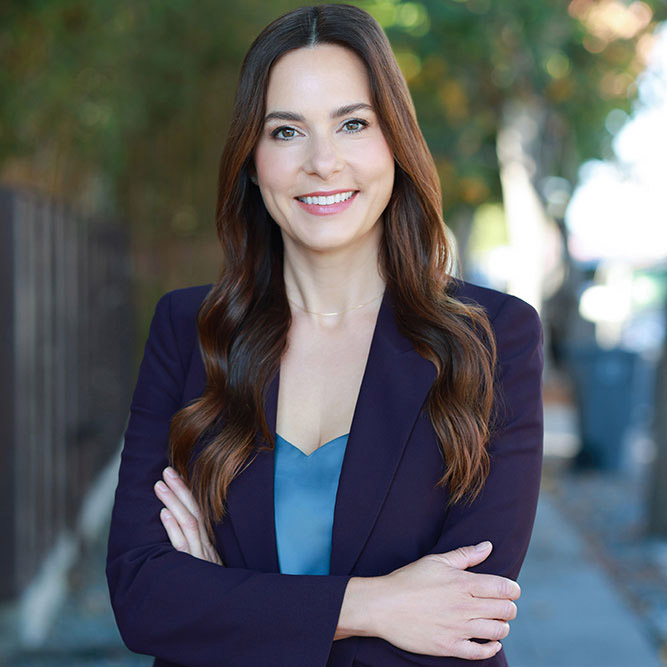
Indre Viskontas, Chair
Associate Professor of Psychology, University of San Francisco President, Society for the Neuroscience of Creativity
Indre Viskontas works at the intersection of music and neuroscience to educate, engage, and entertain and believes that “music isn’t music until the brain makes it so.”
Indre Viskontas, MM, PhD, was the child who listened to Maria Callas while completing her homework. Now, combining her passion for music with boundless scientific curiosity, Dr. Viskontas is a neuroscientist, musician, opera stage director, and science communicator across all media. In addition to her primary academic and professional appointments, Dr. Viskontas runs The Creative Brain Lab at the University of San Francisco, is on faculty at the San Francisco Conservatory of Music, and is creative director of the Pasadena Opera. She also leads the Communications Core at the Sound Health Network, promoting research and public awareness of the impact music can have on our health and well-being.
Dr. Viskontas’ research on the neural basis of memory, music, and creativity has resulted in more than 50 peer-reviewed papers. Her work has been featured in Oliver Sacks’ book, Musicophilia, and also Nature: Science Careers, Nautilus, and Discover Magazine, among other outlets. She has co-hosted several TV and web series and has appeared on The Oprah Winfrey Show, PBS NewsHour, NPR’s City Arts & Lectures, and CBC’s The Sunday Edition. She hosts the podcasts Inquiring Minds and Cadence and is the host and writer of the Audible Original podcast Radiant Minds: the World of Oliver Sacks. Dr. Viskontas’ 2019 book, How Music Can Make You Better, was written for the audiophile as well as for the person who may not understand why others are obsessed with music. A frequent speaker, Dr. Viskontas has created four 24-lecture courses for The Great Courses/Wondrium: Essential Scientific Concepts, Brain Myths Exploded, How Digital Technology Shapes Us, and Creativity and Your Brain.
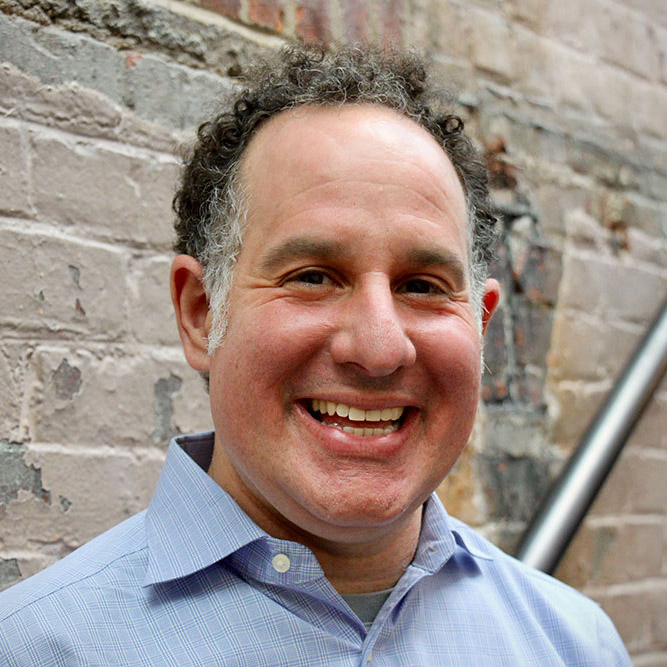
Jonathan Adler
Professor of Psychology, Olin College of Engineering
Jonathan Adler explores the dynamic interconnections between the stories of our lives and our psychological well-being.
Jonathan Adler, PhD, has been drawn to stories his entire life. The anxious actor he was as a child and adolescent developed into the much more comfortable director and playwright he is as an adult. He went to college intending to study English or history, but found he was drawn to the real people in the stories he was hearing, so he majored in psychology. In addition to his role as a psychology professor, Dr. Adler co-directs The Story Lab and is a senior lecturer at Harvard Medical School. An interdisciplinary and mixed-methods scholar who studies identity development and its relationships with well-being, his research focuses on personal and cultural stories. Dr. Adler is currently editor of Personality and Social Psychology Review, a top-ranked journal in those fields that is devoted to major advancements in theory, the ideas that shape the field. Also, for the past decade, he has served as the chief academic officer of Health Story Collaborative, a Cambridge-based non-profit that elevates personal stories in the fragmented healthcare ecosystem. Dr. Adler’s research is often cited in the media, including outlets such as The New York Times, National Public Radio (NPR), The Wall Street Journal, The Boston Globe, The Atlantic, Scientific American, and The Today Show, among others. In October 2023, the NPR program Hidden Brain featured his work.
Dr. Adler continues to participate in theater as a director and playwright and has directed numerous plays at colleges and universities. A play he co-authored with Jim Petosa, Reverse Transcription, premiered off-Broadway in 2022. His next project is a book about stories and the self, tentatively titled Identity Theft.
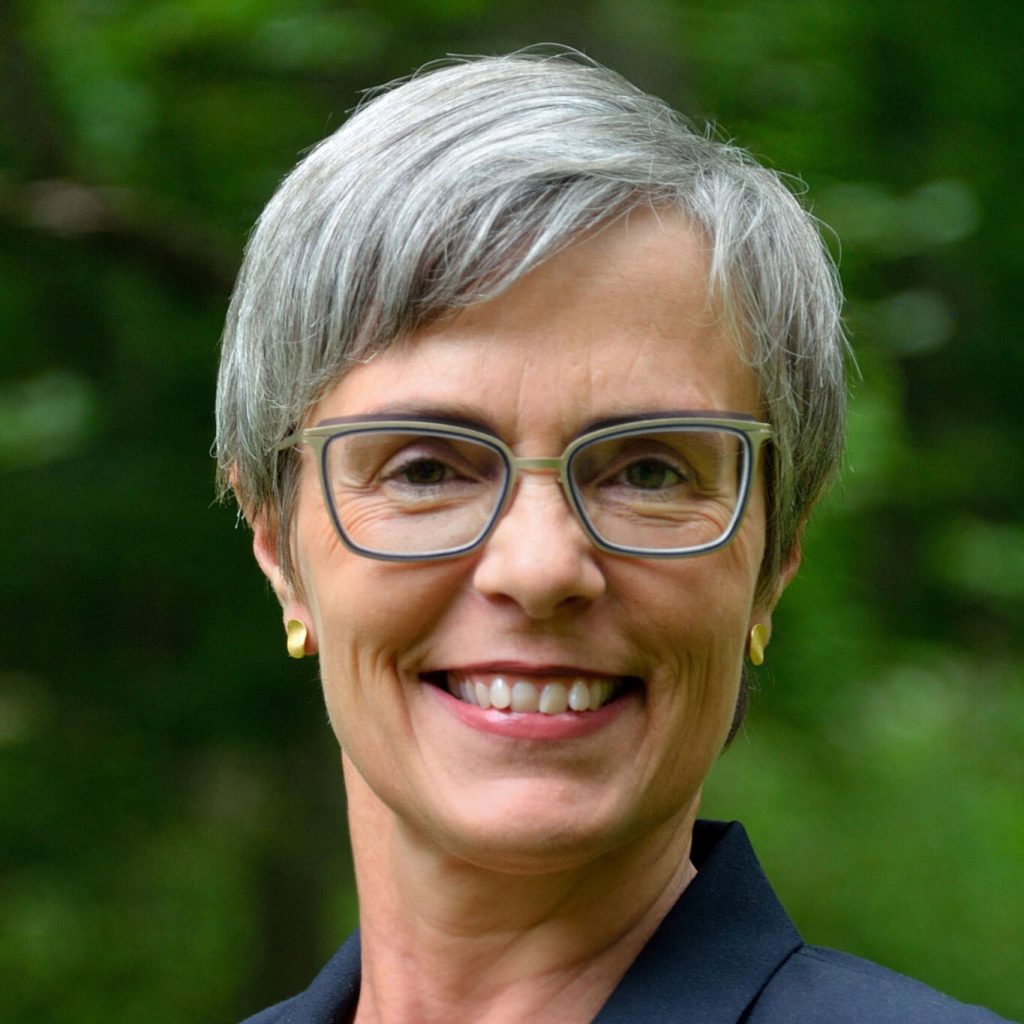
Joke Bradt
Board-Certified Music Therapist
Professor and Program Director, PhD Program in Creative Arts Therapies, Department of Creative Arts Therapies, Drexel UniversityClinical experience and a passion to ease suffering in others inspire Joke Bradt’s dedication to understand the power of music therapy in chronic pain management.
Chronic pain significantly impacts the lives of countless millions of people, yet the evidence base for non-pharmacological treatment approaches is limited. Joke Bradt, PhD, a board-certified music therapist and researcher, has dedicated her career to uncovering the effects and underlying mechanisms of music therapy to relieve chronic pain, an urgent societal need that has gained more traction in the face of a devastating opioid epidemic.
A tenured professor in the Department of Creative Arts Therapies at Drexel University, Dr. Bradt directs Drexel’s doctoral program in that department and also the Council of PhD Programs in the College of Nursing and Health Professions. With federal grants that include funding from the National Institutes of Health (NIH) and the National Endowment for the Arts, she has studied the use of music therapy to support people with cancer-related pain, cancer survivors with chronic pain, people with post-operative pain, military service members with co-morbid chronic pain and mild traumatic brain injury, and many others. A particular focus for her research lab is interactive music therapy interventions that use creative musical activities to engage people with chronic pain and other chronic health conditions. She recently received a major grant of $2.3 million from the NIH’s National Center for Complementary and Integrative Health to build the Music4Pain Network. The network will focus on bringing researchers from different fields together to advance understanding of the fundamental processes related to music and pain. Dr. Bradt also serves as editor of the Nordic Journal of Music Therapy.
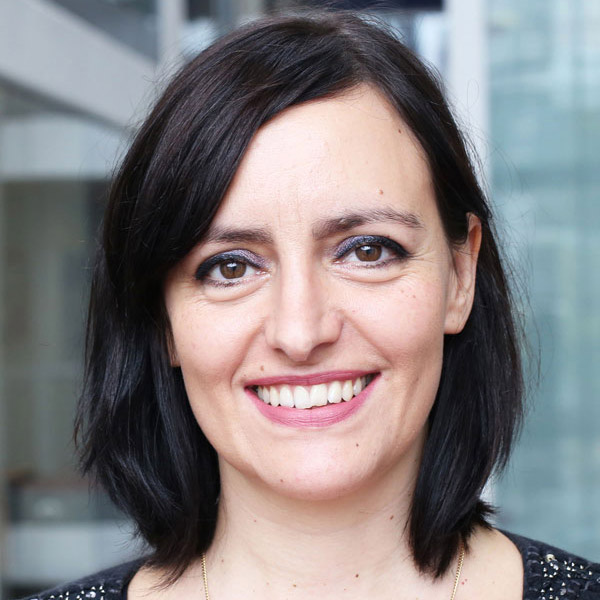
Beatriz Calvo-Merino
Professor of Cognitive Neuroscience, Department of Psychology, School of Health and Psychological Sciences, City University of London
Cognitive neuroscientist Beatriz Calvo-Merino collaborates with dancers to gain a better understanding of the sensorimotor neural and cognitive underpinnings of our aesthetic perception of the performing arts.
Beatriz Calvo-Merino, PhD, focuses on the influence of observer expertise, particularly in the visual and sensorimotor domains, on social perception. Her work encompasses action observation, emotion recognition, and aesthetic experience. Central to her research are collaborations with expert dancers, including the Royal Opera House Ballet, Laban Dance Centre, Mavin Khoo, Tom Sapsford, and the Random Dance Company. Dr. Calvo-Merino uses diverse methodologies to explore the dancer’s brain, such as neuroimaging, neurostimulation, psychophysiology, and behavioral analysis.
She has gained recognition for her research contributions in neuroaesthetics, including the Baumgarten Award from the International Association of Empirical Aesthetics in 2018, and also in neuroscience, with the Early Career Prize from the British Association of Cognitive Neuroscience in 2020. Her research has received funding from the Economic and Social Research Council (ESRC), Leverhulme Trust, Wellcome Trust Sci/Art projects, Ramon y Cajal programme and City University Fellowship Schemas.
In addition to her research, Dr. Calvo-Merino directs the Clinical Social and Cognitive Neuroscience research and teaching program (MSc, PhD) at City University of London.
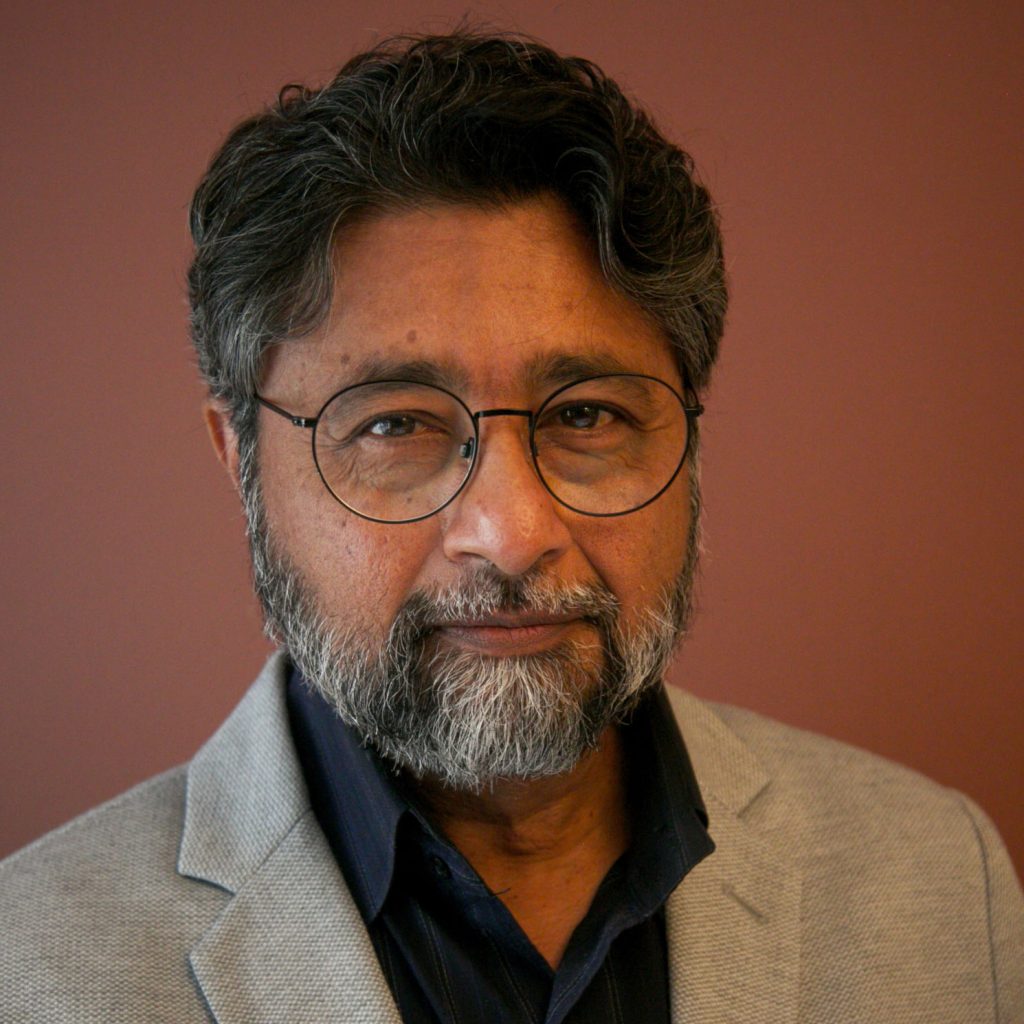
Anjan Chatterjee, MD, FAAN
Professor of Neurology, Psychology, and Architecture
Founding Director, Penn Center for Neuroaesthetics, University of PennsylvaniaAnjan Chatterjee and colleagues have developed a core concept of the neuroarts – the Aesthetic Triad – that explains how our sensorimotor system, our reward system, and our cognitive knowledge and meaning-making all combine to form an aesthetic moment.
The research of Anjan Chatterjee, MD, focuses on neuroaesthetics, spatial cognition, language, and neuroethics. He has shared the results of his work with the world through publications that include The Aesthetic Brain: How We Evolved to Desire Beauty and Enjoy Art and Brain, Beauty, and Art: Essays Bringing Neuroaesthetics into Focus (co-editor), Neuroethics in Practice: Mind, Medicine, and Society (co-editor), and The Roots of Cognitive Neuroscience.
Dr. Chatterjee has received the Norman Geschwind Prize in Behavioral and Cognitive Neurology from the American Academy of Neurology, the Rudolph Arnheim Prize for contributions to psychology and the Arts from the American Psychological Association, and the Leadership in Innovation Award from the Global Wellness Institute for his work in neuroaesthetics. He is a founding member of the Board of the International Neuroethics Society and past president of the International Association of Empirical Aesthetics and the Behavioral Neurology Society. Dr. Chatterjee serves on the board of The Global Wellness Institute and previously was on the boards of the College of Physicians of Philadelphia, Haverford College, the Norris Square Neighborhood Project, and the Associated Services for the Blind and Visually Impaired. He has been on the editorial boards of several neuroscience, psychology, aesthetics, and bioethics journals.
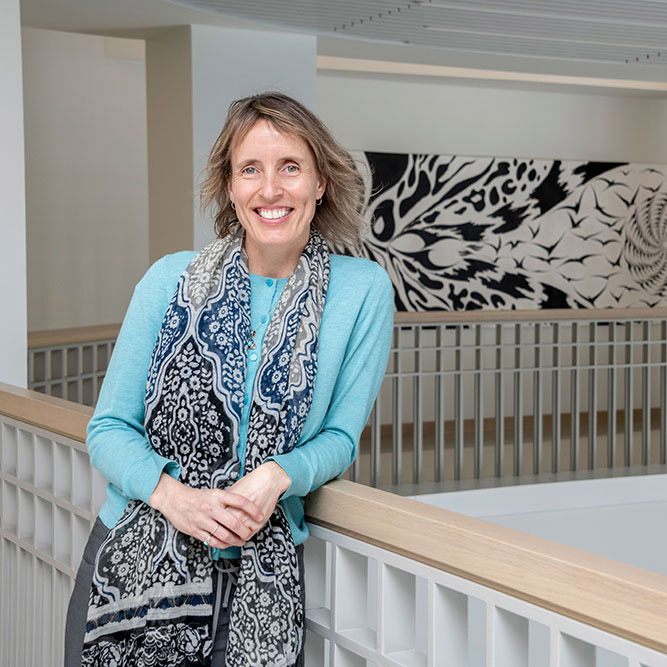
Kathryn Cullen
Professor, Department of Psychiatry and Behavioral Sciences, University of Minnesota
Kathryn Cullen has co-developed the Creativity Camp, which allows adolescents with symptoms of depression to engage in arts activities in a socially welcoming, non-judgmental space.In addition to her responsibilities as a professor, Kathryn Cullen, MD, directs the Division of Child and Adolescent Mental Health at the University of Minnesota and also has a clinical practice. Her research examines the neurodevelopmental underpinnings of depression, self-injury and suicide risk in adolescents and young adults, and investigates interventions aimed at promoting healthy trajectories in these youth. Recently, she has begun to focus on examining neural, behavioral, and social processes related to creativity in youth, and exploring creative arts interventions as a way to improve mental health and wellbeing in young people.
Dr. Cullen’s work with the Creativity Camp has gone global. She and colleague Yuko Taniguchi, an assistant professor for medicine and the arts at the University of Minnesota, Rochester, held a similar program at Akita International University in Japan. They also plan to recruit 40 University of Minnesota undergraduate students for Imagination Studio, a six-week workshop involving participatory arts, self-inquiry, and connection.
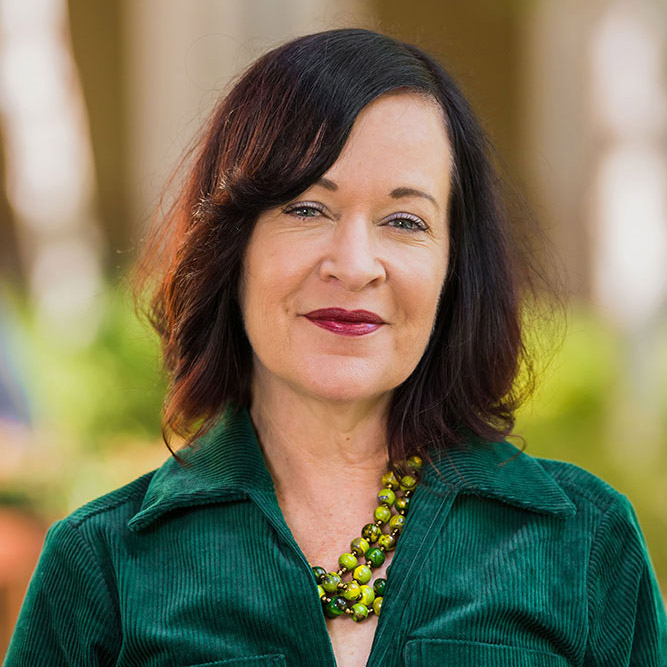
Deborah Cullinan
Vice President for the Arts, Stanford University
Deborah Cullinan is one of the nation’s leading thinkers on the pivotal role that artists and arts organizations can play in shaping our social and political landscape.
Deborah Cullinan has spent years mobilizing communities through arts and culture and has a special focus on the role of the arts in broader communities. She joined Stanford University in early 2022 as its first full-time vice president for the arts. Previously, Ms. Cullinan was chief executive officer of the Yerba Buena Center for the Arts (YBCA) in San Francisco, where she launched several bold new programs, engagement strategies, and civic coalitions. Prior to joining YBCA in 2013, she was the executive director of San Francisco’s Intersection for the Arts.
Ms. Cullinan is a co-founder of CultureBank, board member of the Community Arts Stabilization Trust and EPACENTER, and she recently served as co-chair of the San Francisco Arts Alliance and vice chair of the Yerba Buena Gardens Conservancy. She was the inaugural national field leader-in-residence at Arizona State University’s National Accelerator for Cultural Innovation and a former innovator-in-residence at the Kauffman Foundation. She served on Mayor London Breed’s San Francisco Economic Recovery Task Force and also on Governor Gavin Newsom’s Task Force on Business and Jobs Recovery. Her passion for using art and creativity to shift culture and advance equity and justice has made her a sought-after speaker at events and conferences around the world.
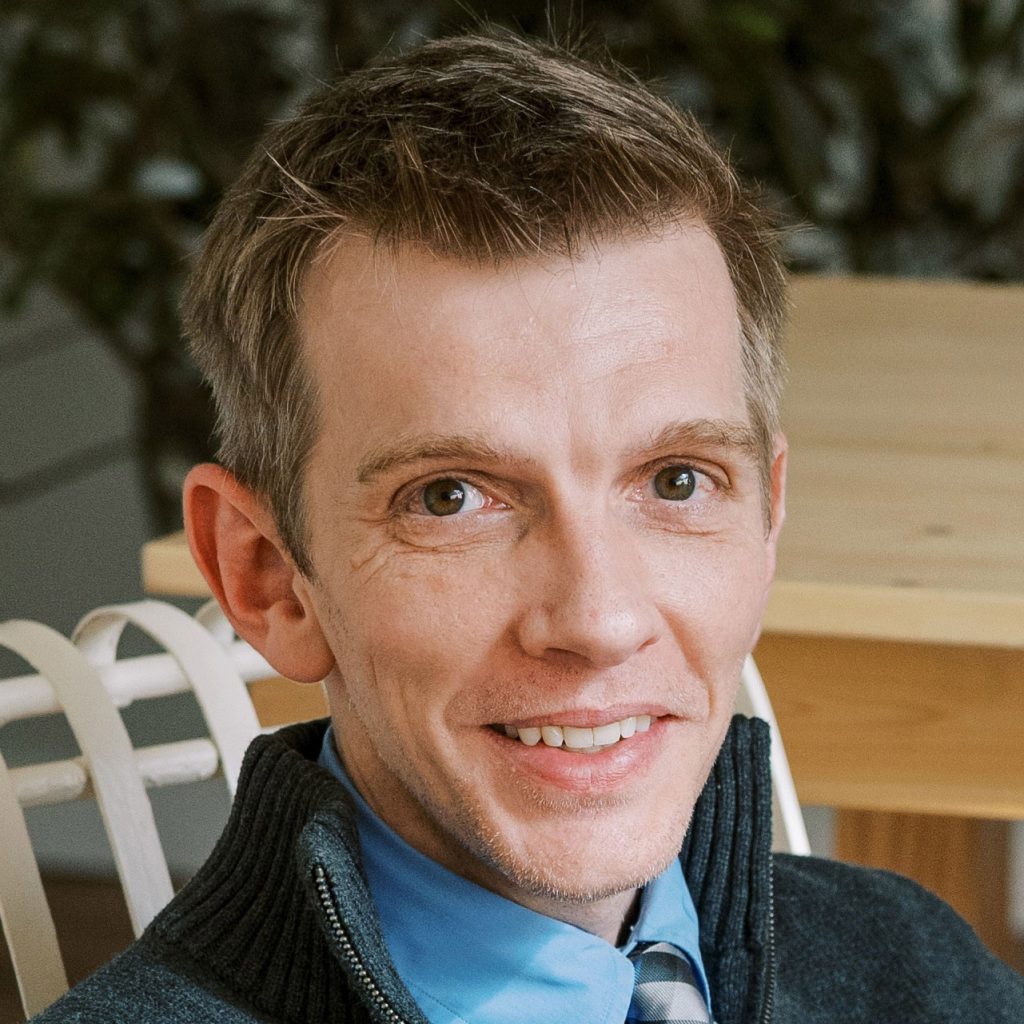
Angus Fletcher
Professor of Story Science, Project Narrative, Department of English, Ohio State University
Angus Fletcher studies literature’s usefulness, considering it as a practical tool for alleviating poverty, hunger, heartbreak, and other physical concerns.
To Angus Fletcher, PhD, the brain is not a computer, but a very different type of machine, one powered by emotions, creativity, and story. by employing a range of empirical methods, from ancient rhetoric to modern science. After working in a neurophysiology lab, Dr. Fletcher’s curiosity led him to a different field – literature – where he could examine how emotion, creativity, and story work in the brain. Today he researches the narrative mechanisms that drive the mental health and wellbeing benefits of literature, theater, and the visual arts. His efforts emphasize neural diversity, cultural difference, evolutionary variety, narrative flexibility, the infiniteness of stories, behavioral adaptability, practical problem-solving, personal growth, democratic pluralism, and the biological benefits of curiosity, inclusion, and tolerance.
Dr. Fletcher has published recently on Aristophanes and Austen, Darwin and Douglass, Machiavelli and Milton, Sappho and Shakespeare. Among his books are Wonderworks, Storythinking, and Primal Intelligence. His research has been funded by the National Science Foundation, the National Endowment for the Humanities, the Mellon Foundation, and the Academy of Motion Picture Arts and Sciences. He has taught for the University of Southern California, Stanford, and Teach for America. His work has been supported by institutions from the National Science Foundation to the Academy of Motion Picture Arts and Sciences. Dr. Fletcher was awarded a Commendation Medal for “groundbreaking” research with U.S. Army’s Special Operations unit that used arts-based training to improve resilience, imagination, and leadership.

Thalia R. Goldstein
Associate Professor of Applied Developmental Psychology, Department of Psychology, George Mason University
Thalia Goldstein looks at how participating in the world of play affects the social and emotional development of children and adolescents.
The work of Thalia Goldstein, PhD, and her team takes place in the appropriately named PLAY (Play, Learning, Arts, and Youth) Lab at George Mason University. There she studies the impact of pretend play and theater interventions on child development. Her work focuses on children's developing social and emotional skills, particularly theory of mind, empathy, and emotional control and regulation, and how such skills intersect with children’s engagement in pretend play, theatre, drama, and other imaginative activities. She also co-directs the National Endowment for the Arts Research Lab, the Mason Arts Research Center.
Dr. Goldstein’s second book, Why Theatre Education Matters: Understanding its Cognitive, Social, and Emotional Benefits, will be released by Teacher's College Press in July 2024. Her research has been funded by grants from the National Science Foundation, the National Endowment for the Arts, The John Templeton Foundation, the Caplan Foundation, Arts Connection, and the Department of Homeland Security. Dr. Goldstein’s papers have appeared in Child Development, Trends in Cognitive Science, Journal of Cognition and Development, and Developmental Science, among others. She serves on the editorial boards of the journals Empirical Studies in the Arts, Creativity Research Journal, and Imagination, Cognition, and Personality. Currently, she is the co-editor of the Psychology of Aesthetics, Creativity, and the Arts and a Fellow of Division 10 of the American Psychological Association.
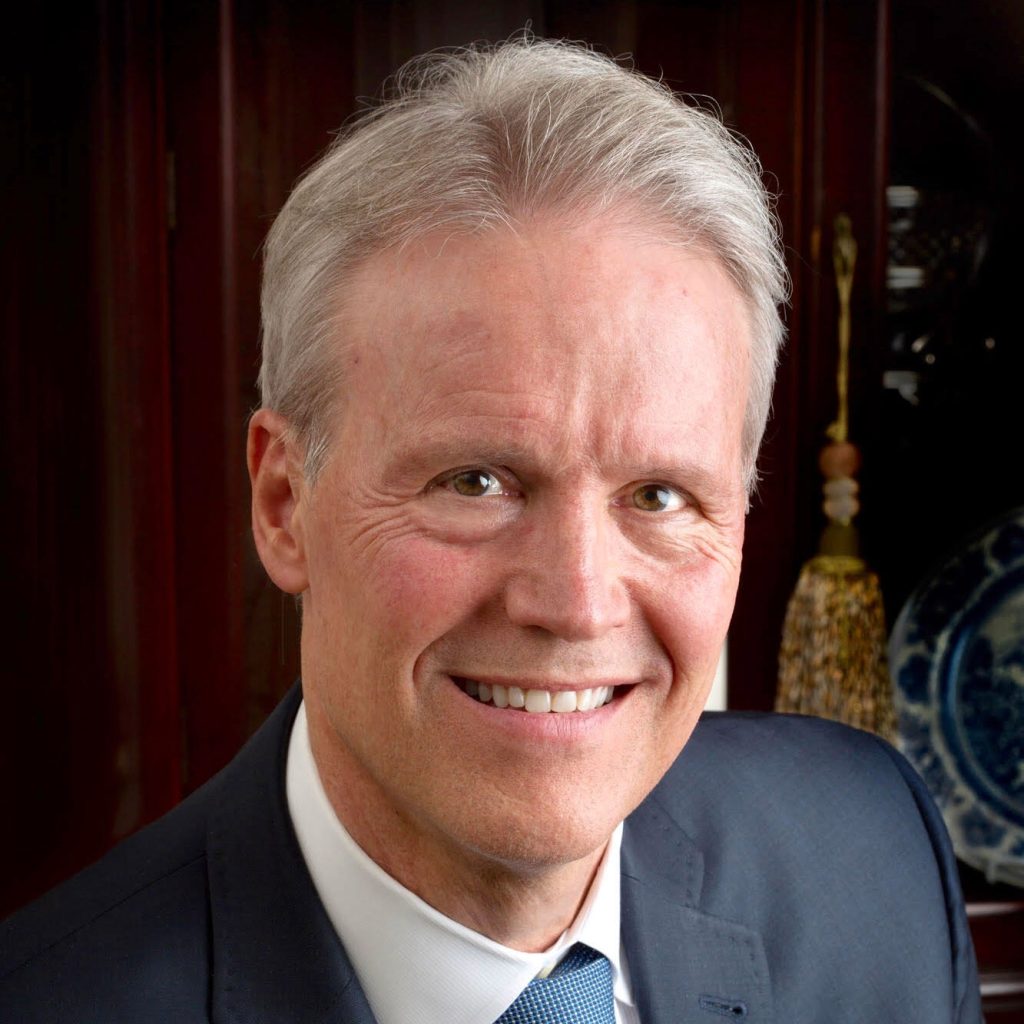
David Hellmann
Director, Center for Innovative Medicine, Johns Hopkins University School of Medicine
David Hellman’s credo as a physician is this: “Know the patient as a person. You are not only treating a disease but you are healing a person…subtle gestures of compassion, warmth, and humanity can make a great and lasting difference.”
At the age of five, David Hellmann, MD, developed a disease that causes a softening of the hipbone, forcing him to spend months in a full-body cast and months more wearing a brace. His own experience with illness, his training in internal medicine at Johns Hopkins, and a long line of influential mentors taught Dr. Hellmann that “medicine is a public trust… It is the public interest over any individual interest that counts,” he says. “We were created not for ourselves but to care for our patients, their families, and our communities.”
Dr. Hellmann directs the Johns Hopkins Center for Innovative Medicine (CIM), which he co-founded in 2005 as a think tank and incubator to actualize the public trust framework. Committed to health care that is affordable, personal, and effective for everyone, CIM projects have focused on developing innovative clinical centers for excellence; teaching physicians the importance of knowing their patients as people; and decreasing disparities in health care. In addition to his leadership responsibilities at Johns Hopkins, Dr. Hellmann teaches physicians and medical students, sees patients in his capacity as a rheumatologist, and remains active in research.
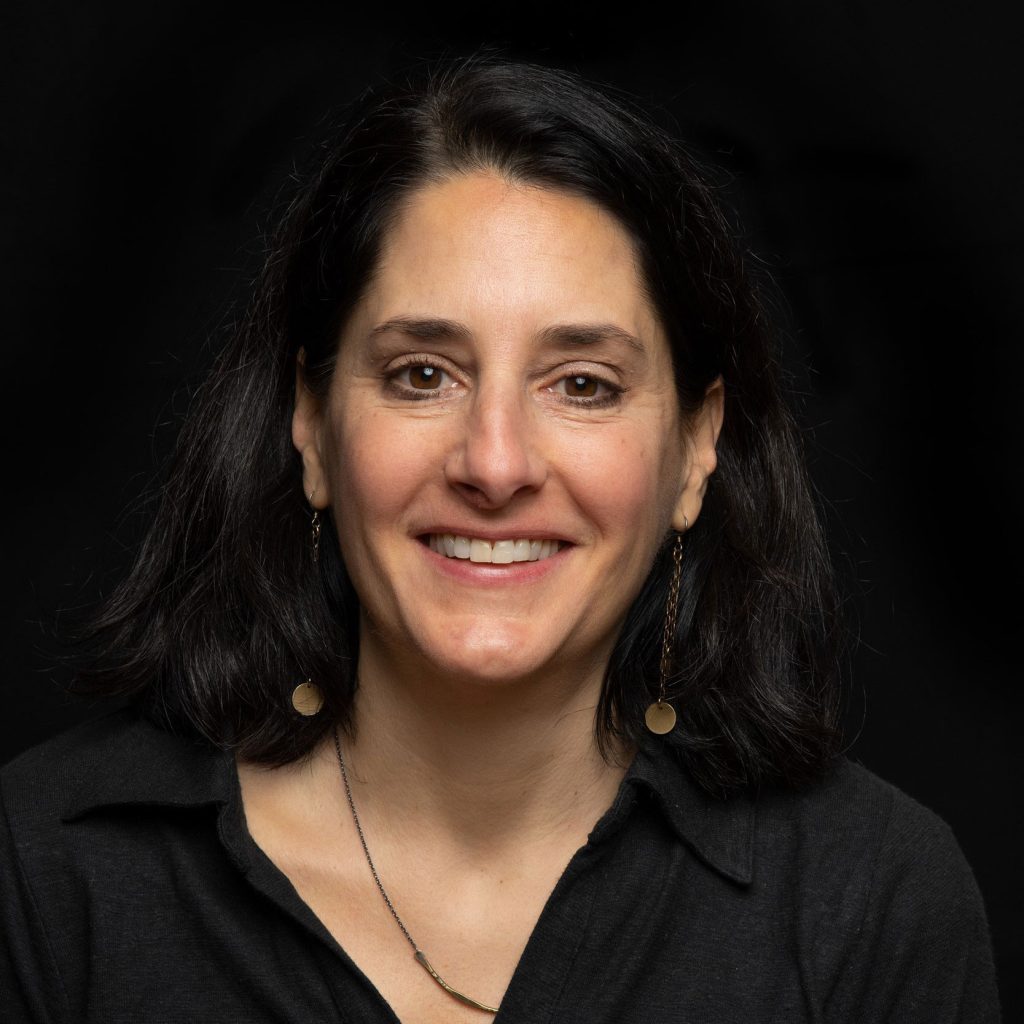
Mary Helen Immordino-Yang
Professor of Education, School of Education, University of Southern California (USC)
Mary Helen Immordino-Yang develops novel approaches to the study of child and adolescent social-emotional and brain development.
In addition to her role as a professor of education at USC, Mary Helen Immordino-Yang, EdD, is the Fahmy and Donna Attallah Professor of Humanistic Psychology at the Brain and Creativity Institute and the founding director of the USC Center for Affective Neuroscience, Development, Learning and Education (CANDLE). She studies the psychological and neurobiological bases of social emotion, self-awareness, and culture and their implications for learning, development, and schools. Among other funded work, Dr. Immordino-Yang has a cross-cultural, longitudinal NSF CAREER study investigating adolescent brain and social-emotional development and relations to school and life achievement in urban contexts.
Dr. Immordino-Yang has been recognized nationally and internationally and in 2023 was elected to the U.S. National Academy of Education. She is serving as a distinguished scientist on the Aspen Institute’s National Commission on Social, Emotional, and Academic Development (SEAD), where she is a member of the sub-committee drafting a working definition of SEAD. Dr. Immordino-Yang is associate editor for the award-winning journal, Mind, Brain, and Education, and for the new journal, AERA Open. She is on the editorial boards of the Journal of Experimental Psychology: General, Cogent Psychology, and Culture and Brain. Dr. Immordino-Yang has served as president of the International Mind, Brain, and Education Society. She is an appointed member of the National Academies of Sciences, Engineering, and Medicine’s Committee on the Science and Practice of Learning. In 2015, Dr. Immordino-Yang published Emotions, Learning and the Brain: Exploring the Educational Implications of Affective Neuroscience, and she donates the proceeds to education-related causes.
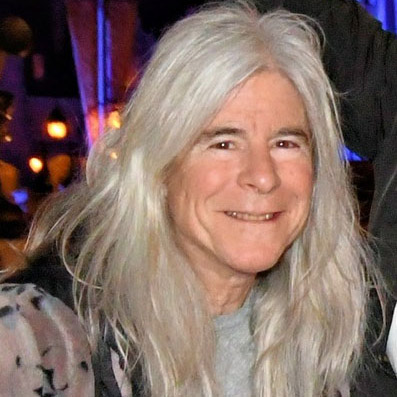
Nina Kraus
Hugh Knowles Professor of Communication Sciences, Neurobiology, and Otolaryngology, Northwestern University
Nina Kraus is a scientist, inventor, and amateur musician who has never accepted a lack of technology as a roadblock to scientific discovery.
In addition to her role as a professor, Nina Kraus, PhD, directs the Knowles Hearing Center at Northwestern University and leads an auditory neuroscience lab known as Brainvolts. As a biologist and amateur musician, Dr. Kraus thinks about sound and brain health and studies the biology of auditory learning. She began her career recording responses from the rabbit auditory cortex and was one of the first to show that the adult nervous system has the potential for reorganization following learning; these insights in basic biology inspired her to investigate auditory learning in humans.
Through a series of innovative studies involving thousands of research participants from birth to age 90, Dr. Kraus’ research has found that our lives in sound, shape auditory processing, whether for better (musicians, bilinguals, auditory training) or worse (learning disabilities, aging, hearing loss). She continues to conduct parallel experiments in animal models to reveal the mechanisms underlying these phenomena. With her technological innovations, Dr. Kraus is pushing science beyond the traditional laboratory by conducting studies in schools, community centers, and clinics, and she has invented new ways to measure the biology of sound processing in humans that provide unprecedented precision and granularity in indexing brain function. Dr. Kraus’ 2021 book, Of Sound Mind – How our Brain Constructs a Meaningful Sonic World, was written for the intellectually curious.
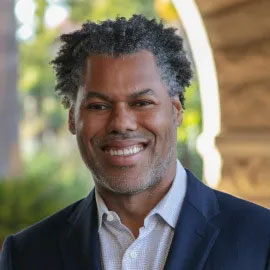
Brian Lowery
Walter Kenneth Kilpatrick Professor of Organizational Behavior, Graduate School of Business, Stanford University
As a social psychologist, Brian Lowery focuses on how relationships shape who we are and can be, with a particular interest in the way we find meaning in life.
On the faculty of Stanford’s Graduate School of Business since 2002, Brian Lowery, PhD, is the co-director of the Stanford Institute on Race, and guides the institute’s mission to “Produce cutting-edge research and solutions to realize racial justice.” He also is the director of the Executive Program in Leadership: The Effective Use of Power, and a founding co-director of the Stanford Institute for Advancing Just Societies. Currently, Dr. Lowery is driving an initiative, Leadership for Society, to support the development of leaders for a diverse society. A course webinar is open to the public: the “Leadership for Society” series. He authored the 2023 book, Selfless: The Social Creation of You and hosts the podcast, “Know What You See.”
Dr. Lowery’s research encompasses two major threads. The first examines the way people understand inequality and how these understandings affect their attitudes and behaviors. The second thread explores the consequences of the reality that others shape ourselves, and we shape others’ senses of self. This work explores issues ranging from the nature of racial, gender, and other social identities to an understanding of how others help us generate meaning in life. Dr. Lowery’s research has been published in major scholarly journals, including the Journal of Personality and Social Psychology, the Journal of Experimental Social Psychology, and Law and Human Behavior.
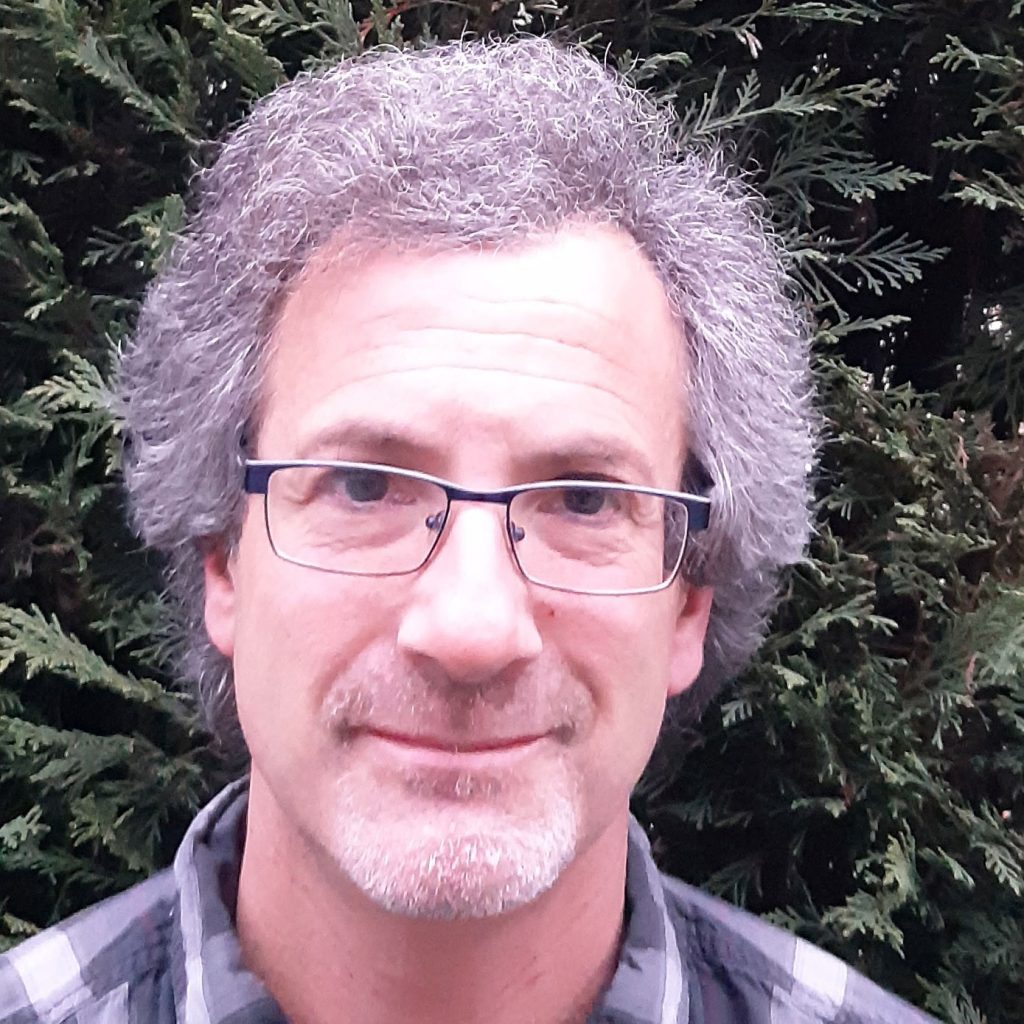
Todd Lubart
Professor of Psychology, the Université de Paris
Director of the Master in Artistic Creation (Arts Therapy)Through his work in psychology, Todd Lubart seeks to unravel the mysteries of creativity and bring the benefits of the creative process to everyone.
A psychology professor at the Université de Paris and the former director of an applied psychology research laboratory and coordinator of several grants and contracts, Todd Lubart, PhD, has authored more than 200 publications on creativity, including articles, books, and psychological tests. He is co-author of Defying the Crowd: Cultivating Creativity in a Culture of Conformity. Dr. Lubart’s lines of research focus on diverse aspects of creativity, such as creative potential, creativity assessments, creativity development, and environmental support for creativity, with an emphasis on individual differences. He is a co-developer of EPoC, a measure of creative potential in children and adolescents. Internationally recognized for his work, Dr. Lubart serves on the editorial board of several journals concerning creativity and innovation. He received the Berlyne award from the American Psychological Association and the NAGC Torrance Award, and he was a junior member of the Institut Universitaire de France. Dr. Lubart is president of the International Society for the Study of Creativity and Innovation.
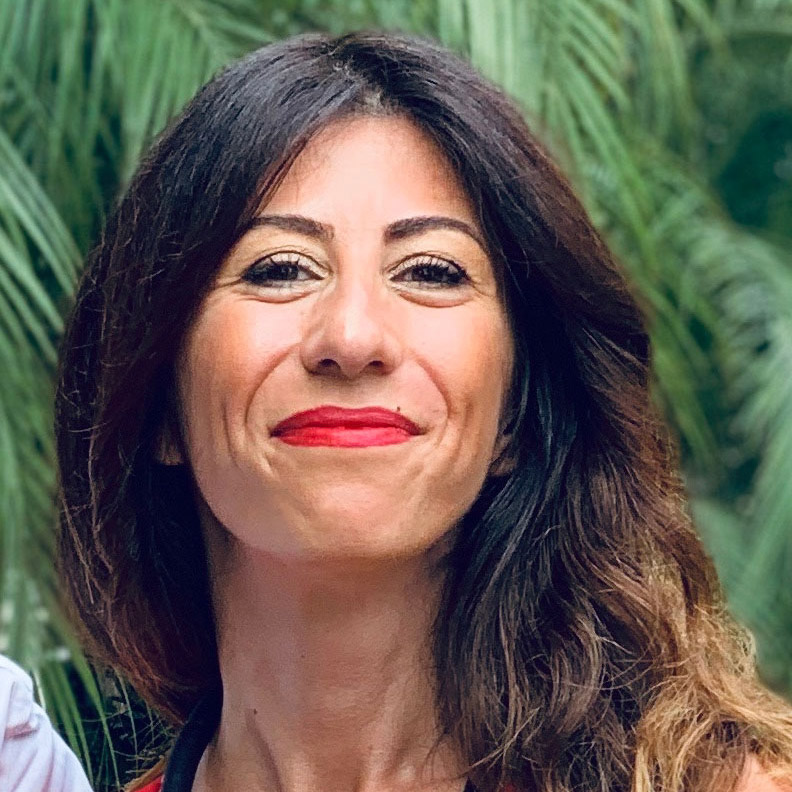
Carola Salvi
Associate Professor of Psychology, Department of Psychological and Social Sciences, John Cabot University (JCU), Rome
Research Affiliate, Department of Psychiatry and Behavioral Sciences, Dell Medical School, University of Texas, AustinThe quest to understand all aspects of insight, including those Aha! moments, fuels the work of Carola Salvi.
The research of Carola Salvi, PhD, focuses on the neural mechanisms underlying insight problem-solving, creativity, and cognitive flexibility. Her theoretical questions extend from cognitive neuro- and behavioral sciences to social psychology and psychophysiology. Dr. Salvi approaches the field of creativity by investigating its relationship with the sensory system, its association with the right temporal lobe, and the dopamine system, as well as the effects of insight’s emotional component (the Aha! experience). She recently began investigating the relationship between cognitive flexibility, social reasoning, and beliefs (e.g., believing in fake news and conspiracy theories). Her work has resulted in the first Italian versions of the several sets of problems, allowing researchers to investigate insight among Italian speakers.
Dr. Salvi has pioneered several breakthroughs in the field of creativity, and her research has been featured in media outlets such as The Washington Post, BBC, Time.com, New York Times, Forbes, RAI National Italian TV, and Redbull TV. In parallel to her scientific career, Dr. Salvi started working on the theme of domestic violence in 2021, and she created an art collection to raise awareness and also raised funds to support this cause. In 2022, her paintings were exhibited at the Witte Museum of San Antonio, Texas, and they have become part of a permanent art collection at the law school of the University of Texas, Austin.
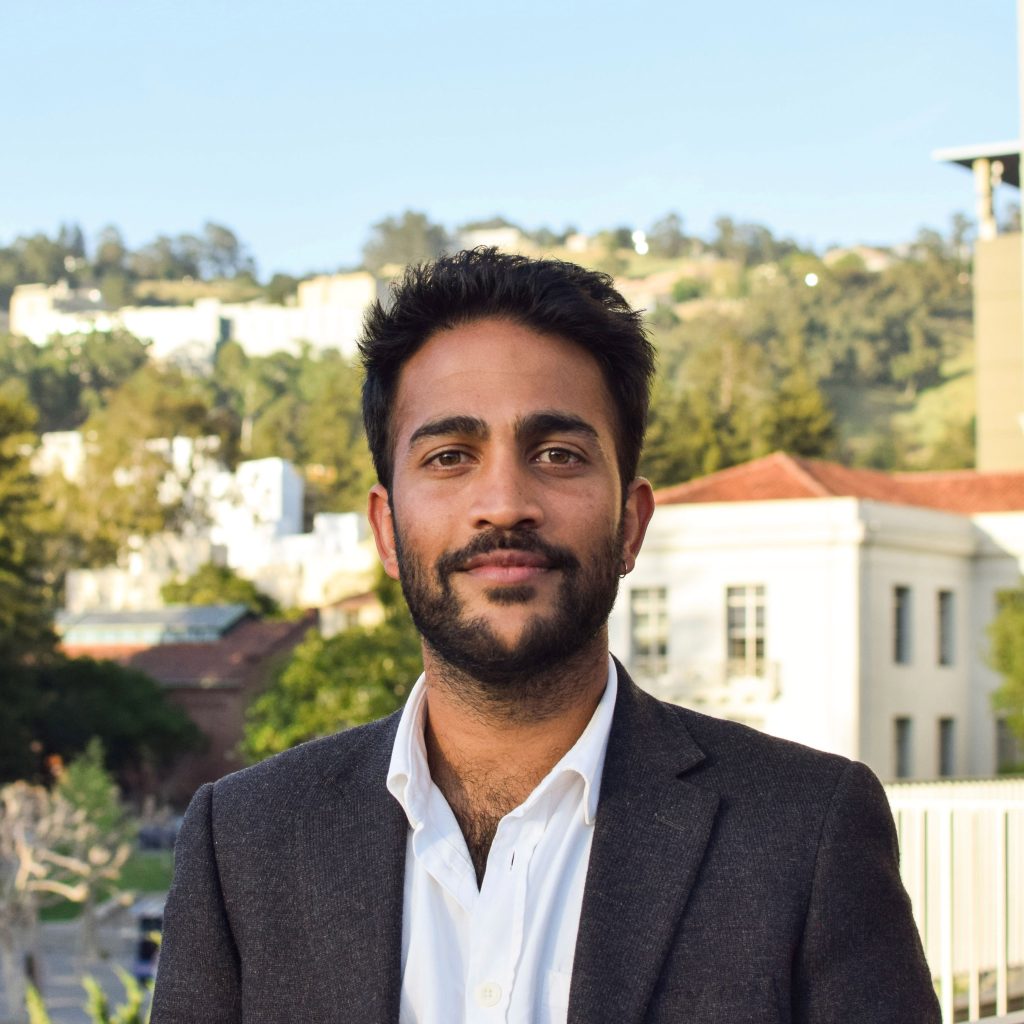
Narayan Sankaran
Postdoctoral Fellow, Kavli Center for Ethics, Science, and the Public, University of California, Berkeley
For Narayan Sankaran, “exposure to music enriches our social, emotional and intellectual lives and has the potential to treat a broad range of conditions.”
Narayan Sankaran, PhD, is an auditory neuroscientist whose research seeks to understand the sound-encoding mechanisms that underly our perception of complex sounds such as music as well as the ethical implications of brain-computer interfaces in human communication. He recently completed his postdoctoral training in the lab of Dr. Edward Chang at the University of California, San Francisco, where he used intracranial electrophysiological recordings in humans to examine how the brain encodes melody and to identify functional specializations for music in the human brain. This work extends Dr. Narayan’s doctoral research conducted at the University of Sydney, which examined pitch-processing in the cortex of highly trained musicians.
Dr. Sankaran’s research has been published in numerous journals, including Science Advances, the Journal of Neuroscience, and the Journal of the Acoustical Society of America. In addition to scientific research on music in the brain, Dr. Narayan is a Rita-Allen Foundation Civic Science Fellow. He also teaches a course on neuroethics at the University of California, Berkeley.
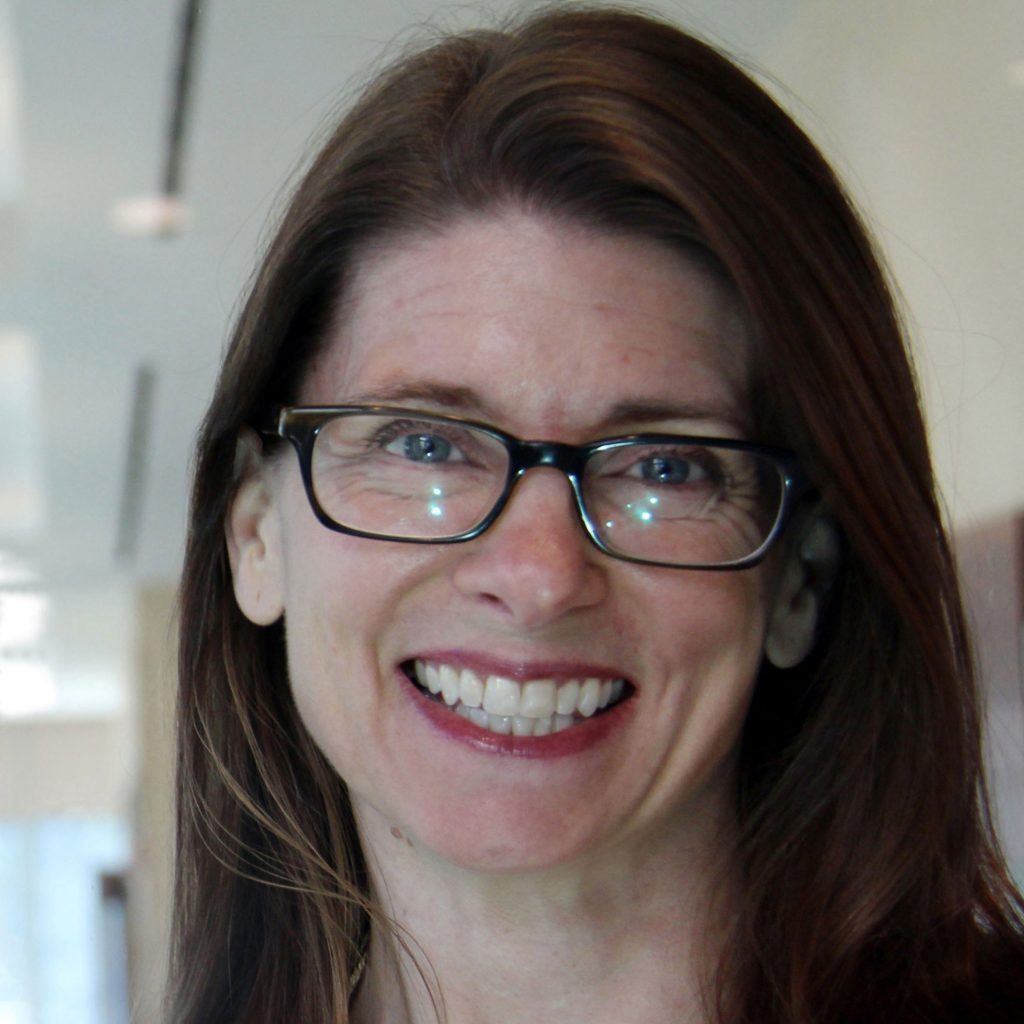
Jill Sonke
Founding Director, Center for Arts in Medicine, University of Florida
Jill Sonke’s research and expertise focus on the transformative power of the arts in promoting wellbeing and healing.
From early childhood, Jill Sonke had dreamed of becoming a doctor, tiptoeing downstairs at night to read the family’s encyclopedia and learn everything she could about the human body. Yet when she encountered dance as a teenage competitive gymnast, everything changed. “I found myself completely lost in movement,” she says in a TEDx talk. “I felt a joy and a high that I had never experienced. It was transcendent.” Convinced that she wanted to repeat that same experience “every day for the rest of my life,” her career aspirations seemed to take a sharp turn.
At the Center for Arts in Medicine, Ms. Sonke has merged her two passions. She guides a cadre of faculty who conduct research into the impact of arts on health, and its degree programs are built around arts in medicine. Also, within the University of Florida’s Shands Arts in Medicine program, she manages a team of 16 artists-in-residence who provide visual, performance, and literary arts experiences to hospitalized patients. Ms. Sonke conducts her own research as well, focusing on arts in public health, arts and the response to epidemics, and the effect of music on the cost and quality of emergency medicine.
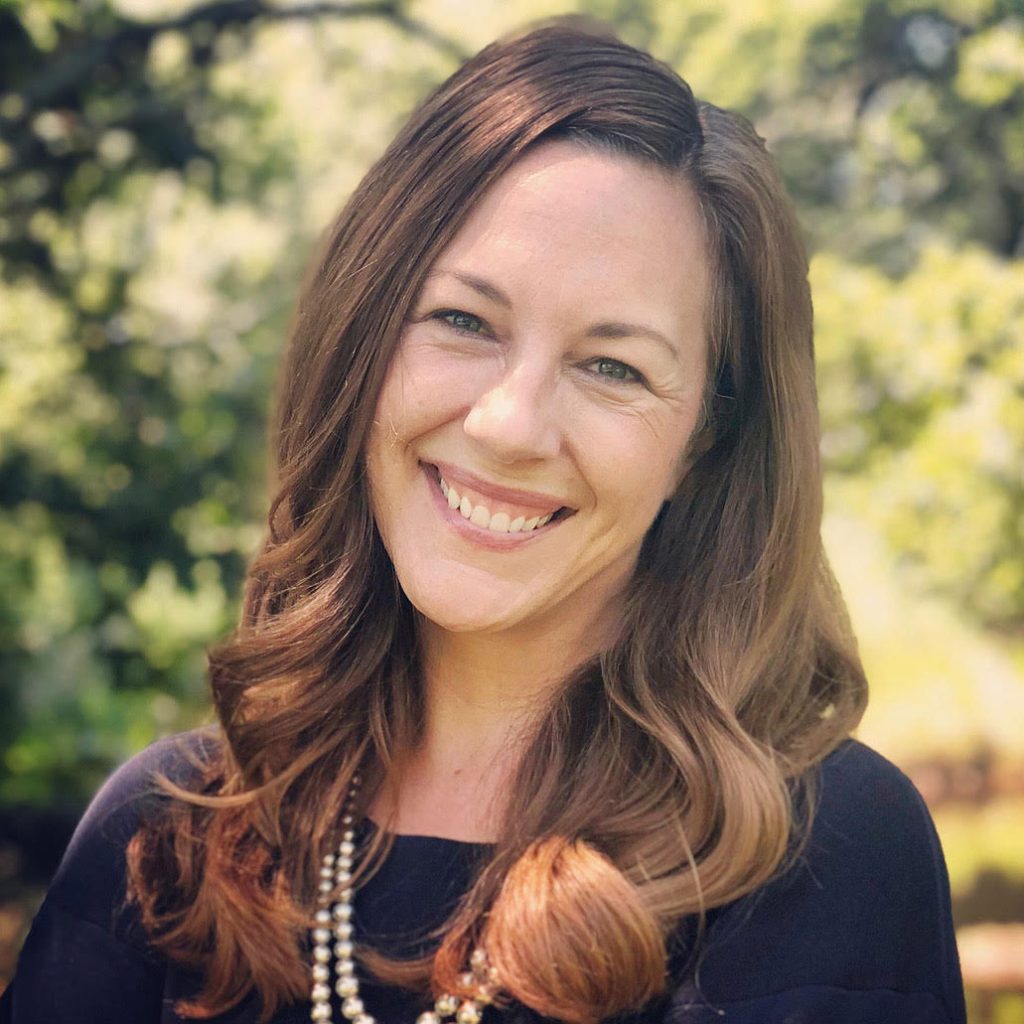
Stacey Springs
Research Integrity Officer, Faculty of Arts and Sciences, Harvard University
Stacey Springs combines her meta-research expertise and bioethics training to improve the integrity, rigor, reproducibility, and ethical conduct of research.
When a patient presents in the emergency room with pain, “which ear are clinicians listening with?” asks Stacey Springs, PhD, in a British Medical Journal article she co-authored. “That ear that is open to the investigation of pain, or the ear that is on the lookout for opioid-seeking behavior?” Such questions engage Dr. Springs as she works to strengthen the translation of evidence into health policy and practice. The answer depends in part on narrative—the story a patient tells and the ones a clinician hears. “The mind does not just receive what is told, it is a story-making machine, and the stories it creates present opportunities for understanding and misunderstanding patients,” she writes.
In addition to her Harvard position, Dr. Springs is director of research and evaluation for the Rhode Island Arts and Health Network, where she engaged the community to help guide an evidence synthesis of arts-based health care interventions. She also is a research associate in the Center for Evidence Synthesis at the Brown University School of Public Health. Her studies include assessing evidence for complex public health interventions, bolstering the quality of research, and improving the uptake of evidence by healthcare systems.

Lisa Wong
Assistant Professor of Pediatrics and Associate Co-Director, Arts and Humanities Initiative, Harvard Medical School
Pediatrician, Milton Pediatric AssociatesLisa Wong, MD, is a musician, pediatrician, and passionate arts education advocate.
A violinist and violist, Lisa Wong, MD, served as president of the Longwood Symphony Orchestra for over 20 years and helped shape its “Healing Art of Music” program to raise funds and awareness for nonprofit health organizations through musical performances. With Dr. Suzanne Hanser, she co-founded the Boston Arts Consortium for Health to bring together leaders in the fields of arts and healthcare. As chair of Boston Public Schools Arts Expansion Initiative and Chair of the education committee of Conservatory Lab Charter School, Dr. Wong advocates for music and social emotional health in Boston’s children. During the Covid-19 pandemic, she joined other colleagues and musicians to create Boston Hope Music to provide music and music education virtually to patients, staff, and caregivers.
Dr. Wong teaches and lectures nationally and internationally on creativity and interdisciplinarity and is the author of the 2012 book, Scales to Scalpels: Doctors Who Practice the Healing Arts of Music and Medicine. She currently teaches an undergraduate course on music, health, and education at Harvard University and a faculty fellowship on Art Museum-based Health Professions Education through the Harvard Macy Institute. She also is working with the Massachusetts Cultural Council to establish Culture Rx, an arts-based social prescription program.
Advisors
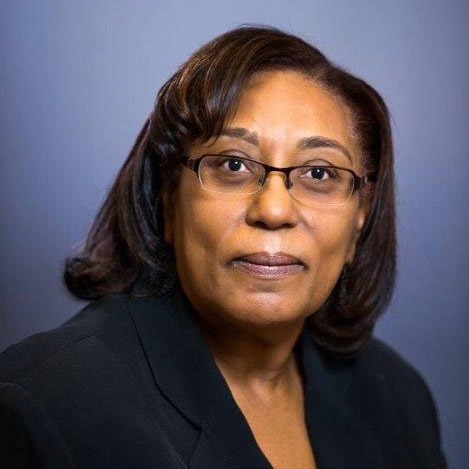
Emmeline Edwards, Advisor
Director, Division of Extramural Research, National Center for Complementary and Integrative Health (NCCIH), National Institutes of Health (NIH)
Emmeline Edwards has been instrumental in bringing together artists, clinicians, and scientists to develop and implement a national research agenda focused on art- and music-based interventions and health.
The logic of science and math, a love of organic chemistry, and supportive mentors all drew Emmeline Edwards, PhD, to a career in neuroscience. Dr. Edwards now brings her passion for neuroscience and dedication to scientific rigor to the NCCIH/NIH, overseeing a broad portfolio of complementary and integrative health research. She also guides the NCCIH’s growing interest in disease prevention, focusing especially on emotional well-being and arts-based therapies. The link between the arts and health “…involves mind and body approaches; is relevant to prevention, health promotion, and the management of difficult symptoms; and, in mechanistic studies, reflects our focus on fundamental science,” she writes on the NCCIH research blog.
In developing NCCIH’s scientific programs, Dr. Edwards oversees initiatives and conferences that connect diverse communities and identify research gaps for future investments. As a co-chair of the NIH Music and Health Working Group, she helps to galvanize and share evidence-based research exploring the role of creative arts in health practices and policies. Prior to joining NIH, Dr. Edwards was associate professor in the Department of Pharmacology at the University of Maryland, where she developed a genetic model of depression. She also chairs Women in World Neuroscience, an international group with the primary mission of identifying, promoting, and implementing mentoring and networking opportunities for women neuroscientists across the world.

Sunil Iyengar, Advisor
Director, Office of Research and Analysis, National Endowment for the Arts (NEA)
Poet and critic Sunil Iyengar has led the NEA in conducting groundbreaking analyses of how the arts impact society and influence the sciences, including a unique study on the U.S. creative economy.
The architecture of a poem, writes Sunil Iyengar in Contemporary Poetry Review, “must be swallowed whole… a poem should be introduced into a reader’s circulatory system.” Poet, critic, and book reviewer, Mr. Iyengar is as lyrical in his writing as he is committed to the power of arts-focused research. On his watch, the National Endowment for the Arts has partnered with the Brookings Institution, the National Academy of Sciences, and the National Institutes of Health, among others, to build a body of evidence for art as a tool for advancing health, well-being, and economic development. He has led a research funding partnership with NIH as part of Sound Health, an initiative of the Kennedy Center and NIH in association with the Arts Endowment. Mr. Iyengar also has helped establish the Sound Health Network, a partnership with the University of California, San Francisco. He has helped NEA develop and publish dozens of research reports, including “Rural Arts, Design, and Innovation in America;” “Staying Engaged: Health Patterns of Older Americans Who Participate in the Arts;” and “The Arts and Achievement in At-Risk Youth.”
Mr. Iyengar also guided the NEA in creating a national data repository and designing an arts “system map” to inform its long-term research agenda. Prior to joining the NEA, he was a reporter and editor covering biomedical research, medical devices, and pharmaceutical industries. His literary and critical writings have appeared in The Washington Post, The New York Times, San Francisco Chronicle, The American Scholar, The New Criterion, and Contemporary Poetry Review.
